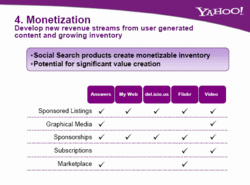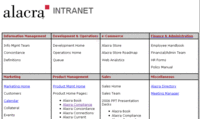 There are many news aggregators in the market today. Most of them add value to the news content by tagging and organizing it for their markets. While most have adopted some level of automation, they still rely heavily on editorial expertise to ensure accuracy.
There are many news aggregators in the market today. Most of them add value to the news content by tagging and organizing it for their markets. While most have adopted some level of automation, they still rely heavily on editorial expertise to ensure accuracy.
Topix.net is a news aggregator which relies solely on automated indexing to create a comprehensive taxonomy to drive relevancy. Founded in 2002 with a mission of helping users quickly and easily find targeted news on the Internet, Topix.net today categorizes news from more than 10,000 sources into over 300,000 specific topics in near real-time.
 The founders at Topix.net came out of the Netscape-driven Open Directory Project, an editorially-driven project to categorize sites on the Internet. According to co-founder and CEO Rich Skrenta, their experience with tends of thousands of volunteer editors made him “decide to avoid editors in Topix.net and stick to algorithms”.
The founders at Topix.net came out of the Netscape-driven Open Directory Project, an editorially-driven project to categorize sites on the Internet. According to co-founder and CEO Rich Skrenta, their experience with tends of thousands of volunteer editors made him “decide to avoid editors in Topix.net and stick to algorithms”.
Early on, one of their key issues was resolving how to serve relevant contextual advertising on a news site. While Google AdSense typically serves relevant advertising to static web pages, the results for news were less relevant and often embarrassing. In one of the more notorious examples, the New York Post published an article about a murder where the victim’s body parts were found in a suitcase. Adjacent to the article was an AdSense ad touting luggage (for those "do-it yourself-ers", I guess).
To combat that, the technology team at Topix.net developed a set of algorithms and a knowledgebase that could better understand what a news story was about and serve up more relevant ads. The knowledgebase is focused on key topical areas, such as geographical map data, lists of movies, CDs and entertainers, and more. The Topix.net algorithms leverage the information in the knowledgebase to classify each news article to the correct topic.
Today, Topix.net gets more than 3 million unique visitors per month. They estimate that to be about half of their readership, as 50% comes through the sites of partners AOL, Yahoo, CitySearch, Ask.com and others. Topix revenue is largely driven through serving AdSense ads on their pages.
Last year, 75% of Topix.net was purchased by Gannett, Tribune and Knight-Ridder (now McClatchy). That investment assigned a healthy valuation of $64M to Topix.net; not bad for a company with estimated revenues of $1M.
Just last week, Topix.net announced the launch of its publisher platform, a revenue-share model targeted towards small-to-medium news providers. They are also extending the invitation to bloggers a la Pluck's Blogburst.
Topix.net has done an amazing job of leveraging technology and domain expertise to create a fully automated system for categorizing news and serving relevant ads. Publishers often view editorial’s role in categorization as simply checking or verifying automated results. Topix.net has demonstrated that a more effective use of this domain knowledge is to use it in the development of a knowledge base and set of algorithms that can automate the labor-intensive tasks. And for that, they are clearly one of the 50 Content Companies that Matter.
![]() Yesterday was Analyst Day for Yahoo. They have posted the PowerPoint (188 pages worth) on the Yahoo website. It's a lot to go through, but has some interesting slides.
Yesterday was Analyst Day for Yahoo. They have posted the PowerPoint (188 pages worth) on the Yahoo website. It's a lot to go through, but has some interesting slides. Jeff Weiner, SVP of Yahoo! Search and MarketPlace, did an interesting presentation on their view of SocialSearch. Yahoo's vision uses the acronym FUSE - for Find, Use, Share, Expand, as shown in this diagram.
Jeff Weiner, SVP of Yahoo! Search and MarketPlace, did an interesting presentation on their view of SocialSearch. Yahoo's vision uses the acronym FUSE - for Find, Use, Share, Expand, as shown in this diagram. Yahoo! really seems to have thought through their strategy, leveraging Social Search (Yahoo Answers and Yahoo Groups), social bookmarking (delicious) and social media (Flickr and a tbd video service) to drive revenue. The revenue model is shown in the graphic below. I think this vision is a real differentiator from Google, whose initial efforts (like Google Notebook) have been uninspired.
Yahoo! really seems to have thought through their strategy, leveraging Social Search (Yahoo Answers and Yahoo Groups), social bookmarking (delicious) and social media (Flickr and a tbd video service) to drive revenue. The revenue model is shown in the graphic below. I think this vision is a real differentiator from Google, whose initial efforts (like Google Notebook) have been uninspired.










